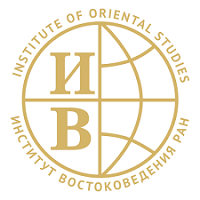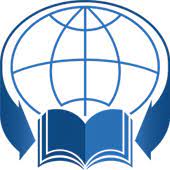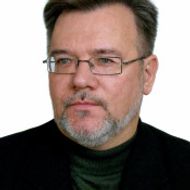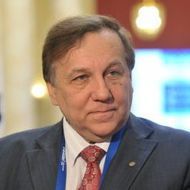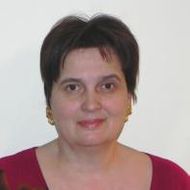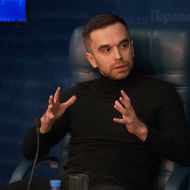The changes the contemporary world is encountering are radical and multi-dimensional. Global governance and regulatory institutions are in a grave crisis. The elites of most countries are unable to offer their citizens attractive development projects. Labor ethics, as well as a value of highly skilled labor and socially responsible behavior, are increasingly marginalized. Simultaneously, the states that until recently were referred to as “non-West”, and at present are de-facto the world majority are strengthening their global positions. Those countries not only firmly declare their intention to revise the global product sharing practice, but also possess sufficient and, most importantly, constantly expanding resources to practically substantiate their growing ambitions.
In the interaction between various international actors, including those located in different parts of the world, simultaneous engagement and disengagement are evident. It takes place amidst an institutional self-organization of the world majority, which is exemplified by the multilateral dialogue venues BRICS, SCO, EAEU and others.
The conference has an academic and a practically-oriented focus. It aims to discuss fundamental processes that shape the evolution of various regions amidst the pivotal global trends. It is the fourth conference on global and regional development organized by School of Regional Studies, Faculty of World Economy and International Affairs, HSE University.
The main issues to be discussed at the conference are as follows: From globalization to de-globalization: the economic dimension; International cooperation vs hybrid warfare as “new normal”; Politics and economy in the age of fake reality; The Greater Eurasia and Euro-Atlantic as poles of contemporary geopolitics; 'The world after tomorrow': basic trends.
Organizer: School of Regional Studies, Faculty of World Economy and International Affairs, HSE University
Partners
Conference Programme
Moscow, Pokrovsky Boulevard, 11
- DECEMBER 1, 2022 (THURSDAY)
- DECEMBER 2, 2022 (FRIDAY)
-
09:30 – 10:00
Registration
-
10:00 – 11:00
Plenary Session
A201
- Welcome speeches of the guests of the Conference
- Plenary report of Sergey Karaganov, Academic Supervisor, Faculty of World Economy and International Affairs
-
11:00 – 11:30
Coffee-break
М111
-
11:30 – 14:00
Section 1. South Asia and New Approaches to Cooperation
F301
The central topics:
- Economic cooperation between Russia and India and the problem of secondary sanctions
- Issues in the political interaction between the countries of South Asia in the contemporary world
- Hindu nationalism as a new model of India’s development
- Indian innovations and business with the countries of South Asia
- Educational cooperation between Russia and the countries of South Asia
-
11:30 – 14:00
Section 2. Ibero-America: Internal Transformations and a New Role in International Affairs
F201
The central topics:
- The sanction policy in the Western Hemisphere
- Russia and the countries of Ibero-America: political and economic interaction
- Political processes and shifts in Ibero-America
- Integration and trade processes in Latin America
- Ibero-American countries and sustainable development issues
-
11:30 – 14:00
Section 3. China in the Age of Xi Jinping
G203
The central topics:
- China after XX CCP Congress: internal and external challenges, limitations and achievement
- China in 'the East-West system'. The transformation and specificity of China-US decoupling
- Russia’s 'turn to China': opportunities, issues and prospects. The impact of the Ukraine crises on Russia-China relations
- New Chinese narratives ('the Community of Common Destiny', 'the Chinese Dream') and the Belt and Road Initiative: how Asia and the world see them
-
14:00 – 15:00
Lunch
М111
-
15:00 – 18:00
Section 4. The Central Asian Arena of Contemporary World Politics
F201
The central topics:
- Central Asia through the prism of multilateral Eurasian formats: the CSTO, the EAEU, the Belt and Road Initiative, the SCO
- The bilateral tracks of Russia’s policy in Central Asia (Kazakhstan, Turkmenistan, Uzbekistan, Kyrgyzstan, Tajikistan). The specificity of Russia’s and China’s approaches
- The security challenges. The transformation of the Afghan factor after August 2021. Trans-national crime, drug trafficking and religious extremism as security issues
- The US/West policy in Central Asia. The influence of the Ukraine crises on their strategy and tactics
-
15:00 – 18:00
Session 5. Southeast Asia before and after February 2022
G203
The central topics:
- The ASEAN Community after February 2022: new nuances
- ASEAN between the US and China amidst the rising global turbulence
- ASEAN-centric dialogue venues and their digital dimension
- Prospects for East Asian GVCs transformation and commercial practices in Southeast Asia
-
11:00 - 14:00
Section 6. The Middle East amidst the Confrontation between the West and Russia
F301
The central topics:
- The new world order: how the countries of the Middle East and North Africa see it and how they perceive Russia’s approaches
- The multilateral venues: prospects for cooperation between the regional states and BRICS, the SCO, the EAEU
- Turkey: the vectors of activity in the changing world, a synergy with Russia’s interests
- Iran: the experience of resisting the sanction pressure, promising areas of cooperation with Russia
- The Libyan zone of instability amidst the changing foreign policies pursued by regional and global states
- The potential of OPEC and OPEC Plus as a factor that shapes an emerging international economic order
- Egypt and the League of Arab States amidst the confrontation between Moscow and the West
- Russia-Israel dialogue on international security issues: possibilities and limitations
-
12:00 – 14:00
Round-table
Contemporary Regional Studies: a Methodological Perspective
G303
In partnership with Institute of Philology, Foreign Languages and Media Communication, Faculty of Foreign Languages, Irkutsk State University & School of Asian Studies of HSE University
-
15:00 – 18:00
Session 7. The end of the Greater Europe
F301
The central topics:
- A contemporary interplay of international political shifts and internal political developments in Western countries
- The European Union amidst the on-going geopolitical shifts
- The value-based transformation of European societies
- The EU strategic autonomy under the changed circumstances
-
15:00 – 18:00
Section 8. Northeast Asia and Prospects for the 'Asian Century'
G303
The central topics:
- Northeast Asia amidst a growing crisis in the 'West-East' system. The regional hotspots (the Taiwan Straits, the Korean Peninsula etc.)
- The Korean Peninsula in Russia’s policy. The global, the regional and the bilateral dimension
- Russia and Japan. A low-key dialogue and the internal tension. The end of era of expecting the Treaty?
- Mongolia as a key component of Russia’s hydrocarbon and transport strategy in the region. Possibilities and prospects
-
10:00 – 12:00
Roundtable for Young Scholars
Round table
The economic potential of Turkey and Iran: opportunities for expanding cooperation with the Russian Federation in the medium termZoom
-
12:00 – 18:00
Roundtable for Young Scholars
Round table
The impact of global and regional transformations on the development of Western and non-Western societies: History and Modernity
Zoom
Registration
To register your application for a presentation at the conference, we ask you to carefully and correctly fill out ANNEX 1 and save it as a Word document. Please send ANNEX 1 to the electronic address of the organizing committee of the conference (weic@hse.ru), putting in the copy the address of the conference coordinator Murad S. Sadygzade (msadygzade@hse.ru), until 23:59 (Moscow Time Zone) November 15, 2022.
Registration form
Venue: HSE University, Moscow
Working language: Russian, English (simultaneous translation)
Possible forms of participation: Hybrid (Offline & Online)
Co-chairmen of the Organizing Committee
Sergey A. Karaganov
Professor, Honorary Chairman of the Presidium of the Council on Foreign and Defense Policy, Academic Supervisor of the Faculty of World Economy and International Affairs, HSE University
Anastasia Likhacheva
Associate Professor, Dean of the Faculty of World Economy and International Affairs, HSE University
Members of Organizing Committees
Professor, Head of the of the School of Regional Studies, Faculty of World Economy and International Affairs, HSE University
Professor, Head of the South-East Asia and South Pacific Studies Section of the School of Regional Studies, Faculty of World Economy and International Affairs, HSE University
Professor, School of Regional Studies, Faculty of World Economy and International Affairs, HSE University
Professor, Head of the Middle Eastern and North African Studies of the School of Regional Studies, Faculty of World Economy and International Affairs, HSE University
Associate Professor, Head of the South Asian Studies Section of the School of Regional Studies, Faculty of World Economy and International Affairs, HSE University
Professor, School of Regional Studies, Faculty of World Economy and International Affairs, HSE University
Research Fellow, School of Regional Studies, Faculty of World Economy and International Affairs, HSE University
Research Fellow, Centre for Comprehensive European and International Studies (CCEIS); Associate Professor, School of Regional Studies, Faculty of World Economy and International Affairs, HSE University

Associate Professor, School of World Economy, Faculty of World Economy and International Affairs, HSE University
Visiting Lecturer, Deputy Head of the Joint Department with RAS Institute of Oriental Studies, HSE University
Working Group
Visiting Lecturer, School of Regional Studies, Faculty of World Economy and International Affairs, HSE University
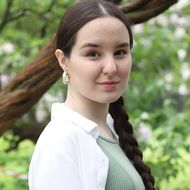
Visiting Lecturer, School of Regional Studies, Faculty of World Economy and International Affairs, HSE University
Visiting Lecturer, School of Regional Studies, Faculty of World Economy and International Affairs, HSE University
Programme Manager, Master Program “Socioeconomic and Political Development of Modern Asia”, Faculty of World Economy and International Affairs, HSE University
Manager, School of Regional Studies, Faculty of World Economy and International Affairs, HSE University
Contacts
Concerning all organizational questions, please contact Murad Sadygzade: (msadygzade@hse.ru)
